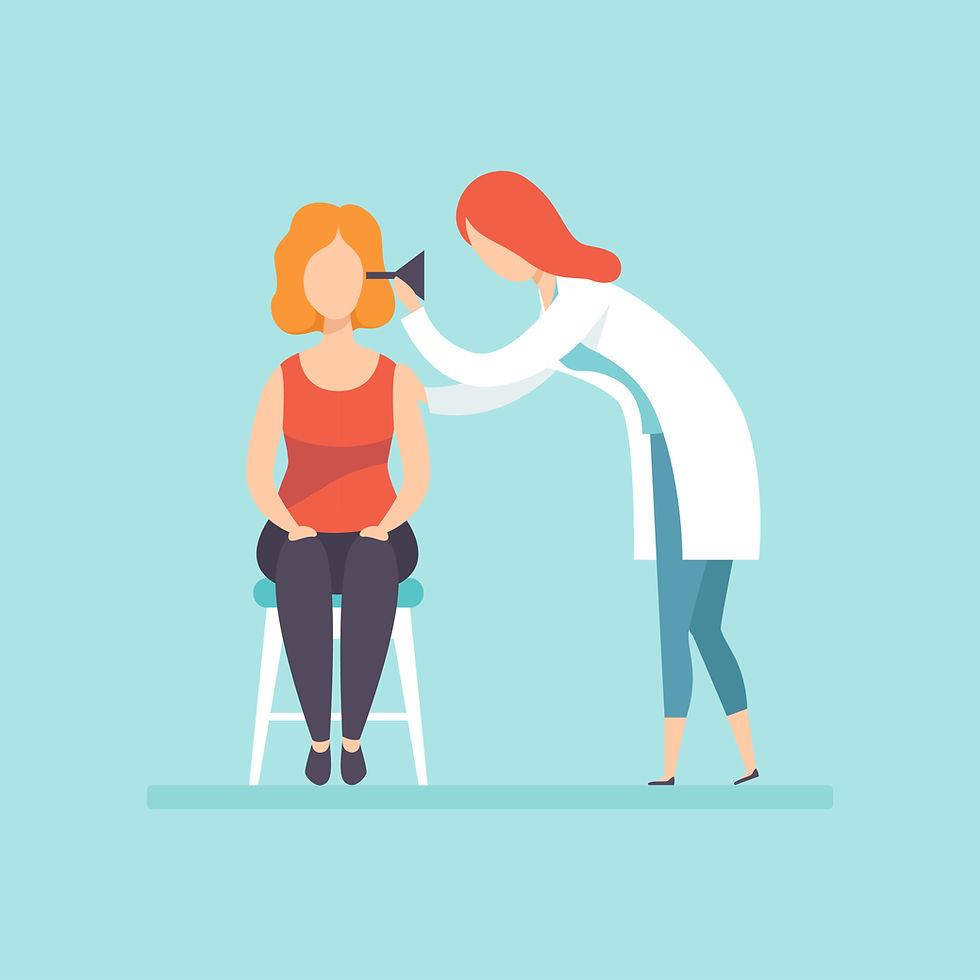Can antibiotics make me deaf?
- Catherine Mills
- Apr 28, 2020
- 3 min read
Updated: Nov 14, 2023
If you read the possible side effects on any medication leaflet, you will probably find hearing loss, balance problems and tinnitus listed. With general medicines like paracetamol, with the right dosage, the risk of experiencing any of these symptoms is extremely low. But what happens if you become more seriously unwell and require antibiotics. Or worse still, develop a life threatening disease that requires stronger medicines developed, essentially, to prolong life.
Ototoxic medications are essentially "ear" (oto) "poison" (toxic). We have known about the ototoxic impact of antibiotics for many years and whilst their administration may be more important than some possible side effects, those that then live with long term problems with their hearing or balance can find their quality of life significantly affected.
Up until recently, we have identified that certain ototoxic medications can cause permanent hearing loss but we haven't really understood why.
Below is a cochlea, the organ of hearing. It has over 20,000 sensory hair cells across it's length responsible for amplifying and converting incoming sound waves into electrical impulses - the language the brain understands. It is ~31.5mm long and ~10mm wide. Given how small it is, how can you fail to be impressed with the role it plays. Such a small organ to have inside your ears, yet its function determines your ability to confidently and effectively communicate in a hearing world.

Cochlea of the inner ear - coloured - green. Dr David Furness. Attribution-NonCommercial 4.0 International (CC BY-NC 4.0). Source: Wellcome Collection. https://wellcomecollection.org/works/ku59rpv3
Some life saving antibiotics are well known to cause permanent hearing loss. Yet they are popular and used widely because they treat a wide range of bacteria unlike some modern narrow spectrum antibiotics. They are also able to treat microbes that are resistant to a range of other antibiotics.
Inflammation is the body's way of reacting to infection. The cochlear, the organ of hearing contains sensory hair cells. Within these hair cells are ion channels which help to convert mechanical sound picked up as air waves, into electrical signals, the language that the brain understands. Inflammation as a result of infections, causes these ion channels to become more permeable to the antibiotics which increases the sensory cells sensitivity to the drugs' toxic, poisonous effects.
Teams at the Oregon Hearing Research Centre and National Centre for Rehabilitative Auditory Research, both in Oregon, led by Peter Steyger in July 2019, found that one particular protein involved in ion channels actually facilitated the antibiotics entry into the sensory hair cell even in the presence of inflammation. So hearing loss is inevitable.
I am not a doctor so am not qualified to talk about how antibiotics are chosen but at a time when we have become so concerned about overuse of antibiotics, it is welcome research to find that certain antibiotics can cause harm to the auditory system when other antibiotics may not. Steyger and his colleagues say that doctors should consider using antibiotics that don't increase the risk of hearing loss in patients with body-wide infection, where possible. He adds that as new techniques are developed that can identify microbes for infection more rapidly, doctors may soon be less reliant on broad spectrum antibiotics.
This is very exciting news for the treatment of newborns especially who can present with infections that may prove fatal within days if not treated but are given ototoxic antibiotics because there isn't enough time to test for the responsible microbe. This may have a huge impact on a baby's future. It's reassuring to know such advancements are being made.




コメント